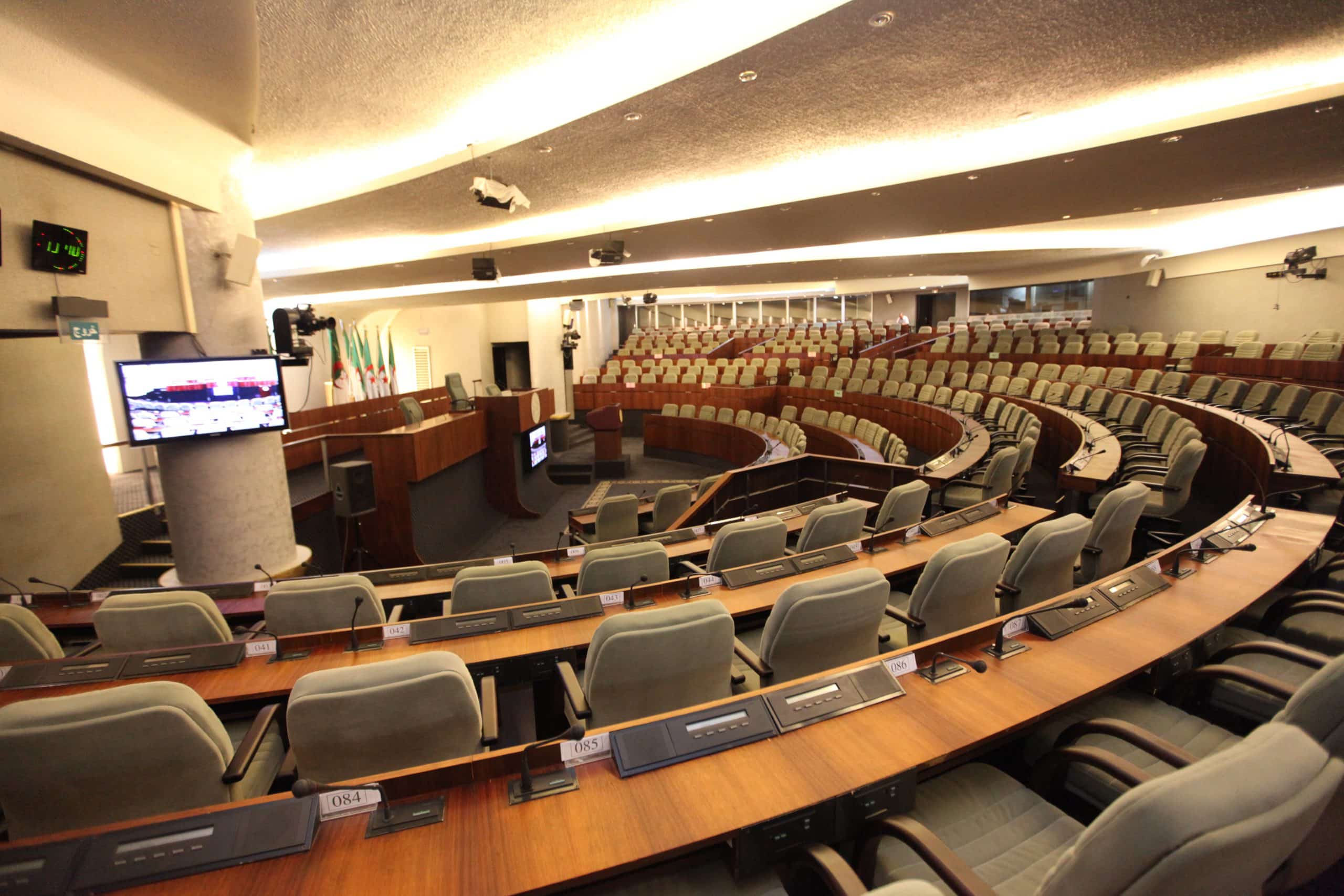Algerian legislative elections, which were scheduled in 2022 originally, will be held on June 12. Amid a resurgence of Hirak protests, President Abdelmajid Tebboune brought forward the elections to increase the legitimacy of his government. However, as protests continue and several other opposition parties have joined the Hirak movement in its boycott of the election, low voter turnout and irregularities on election day are expected. The largest governmental parties, the National Liberation Front (FLN) and National Rally for Democracy (RND), are likely to lose votes to eager Islamist political forces.
Establishment expected to lose votes
Algerians will be heading to the polls to elect 407 members for the People’s National Assembly (APN), Algeria’s lower house. The members are elected through proportional representation. Almost 1500 candidate lists will compete, of which 646 represent 28 political parties and 837 are independent lists. There are many new people running as independents, hoping to attract many younger voters. Most have ties with the established parties though. Fearing a potential defeat, the FLN and RND hope to maintain much of their influence through newly elected independents.
This fear is not ungrounded, as there is widespread dissent about the country’s leadership. Algeria is heavily reliant on oil and has been going through an economic crisis after oil prices dropped in 2014. The COVID-19 pandemic has only worsened matters. Youth unemployment has risen till over 30%. Therefore, the FLN, RND and other parties close to the previous governments, such as the Rally for Hope for Algeria (TAJ), Algerian Popular Movement (MPA) and Future Front, are likely to lose seats. They hope that most of the votes will go to independents, but Islamist forces are likely to see their vote share increase.
Islamist parties eager to compete
Islamist political forces have appeared particularly keen to participate in this election, hoping to significantly increase their share of power. Such right-wing political parties include the Movement of Society for Peace (MSP), the Ennahda (Renaissance) Movement, the Movement for National Reform, the Justice and Development Front and the National El Bina (Construction) Movement. These Islamist forces would like to see the role of Islam in Algeria’s politics increase, thereby altering the secular status quo. How large the impact of Islamist forces will be remains uncertain with the lack of reliable polls.
Election boycott
The election is widely boycott by many political forces. The most important is the Hirak movement, which was established in 2019. When former President Abdelaziz Bouteflika announced he would be running for a fifth consecutive term, widespread protests forced him to resign. The newly elected President Tebboune promised political reforms, but so far protesters as part of the Hirak movement have not been satisfied. They demand all political forces linked to Bouteflika’s former regime to step aside. This includes current President Tebboune and the governing FLN and FND parties.
The Hirak movement remains without a leader and has not evolved into a political force, demanding a complete overhaul of the political system. It is not willing to compromise with the established elite, which is widely believed to be backed by the military. This has so far made it difficult to turn the masses which have taken to the streets, into political change. Currently, it remains to be seen what the impact of the election boycott will be too. It will have an impact on voter turnout and irregularities on election day are likely to occur. To what extent, however, that is quite unclear as election day nears.
It is promising for the Hirak movement, that several, mostly left-leaning, opposition parties have joined its boycott. The liberal Rally for the Culture and Democracy, Workers Party, Socialist Workers Party, Union for Change and Progress Party have all declared that they will not be participating. Though distancing themselves more from the Hirak movement’s call for “dégagisme”, the government’s departure, the Socialist Front Forces has also declared to boycott the vote. They remain critical of the somewhat nihilistic approach to politics that the Hirak movement keeps up though.
Predictions for tense election day
With the approaching election, Algeria’s government hopes to increase its legitimacy. However, if the elections take place alongside widespread unrest and with a dramatic voter turnout, the election could only further de-legitimize Tebboune’s government. The crackdown it has unleashed on protesters and critical journalists throughout the last months, does not contribute either. During the boycotted 2020 constitutional referendum, only 23,1% of voters cast their ballots. Whether this record low can be broken remains to be seen, but the protests and boycott will surely have impact.
Illustrating the tense climate, the army on June 1 urged all parties to drop “plans to disrupt the legislative election”. Although no there were no official calls from political parties, irregularities are likely to occur on election day. What can be expected in terms of election results, is that the established forces are likely to lose seats to independents and Islamist forces. If it is mostly independents who win during the election, the established parties, like the FLN and RND, will likely maintain most of their control. If Islamist forces turn out to be the election’s biggest winners, they could significantly alter the status quo.
Image: Wikimedia (People’s National Assembly, APN, 2012)
Sources: AfricaNews, Aljazeera, AtlanticCouncil, EPC, France24, GulfNews, Memo1, Memo2, VOA

